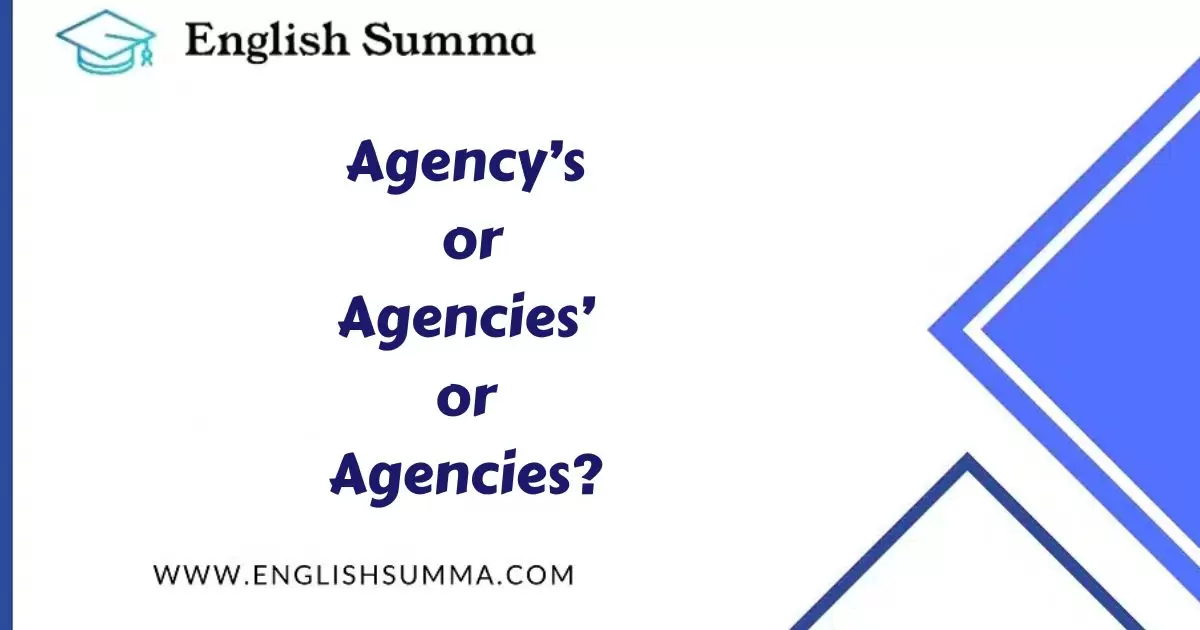In the vast landscape of the English language, the correct usage of possessive forms can sometimes be a source of confusion. Among the perplexing choices that writers often encounter are the distinctions between Agency’s, Agencies’, and Agencies.
Each form serves a unique purpose, conveying different nuances of possession. In this article, we will delve into the intricacies of these possessive forms, providing clarity through scenario examples and linguistic insights.
Agency’s: Singular Possessive Form
The possessive form Agency’s is used to indicate that something belongs to or is associated with a single agency. This form is employed when referring to the possession or ownership of an entity by a singular agency.
Scenario Example:
The agency’s decision to implement new regulations caused a stir among industry leaders.
In this instance, the use of Agency’s highlights that the decision belongs specifically to one agency, emphasizing its singular ownership.
Agencies’: Plural Possessive Form
On the other hand, Agencies’ is the plural possessive form, indicating that something belongs to or is associated with multiple agencies. This form is used when referring to the possession or ownership shared by more than one agency.
Scenario Example:
The agencies’ collaboration resulted in a comprehensive report on environmental sustainability.
Here, Agencies’ denotes that the collaboration and the subsequent report are the collective efforts of multiple agencies, illustrating shared ownership or involvement.
Agencies: Plural Form without Possessive
Lastly, the term Agencies can also be used in its plural form without indicating possession. In this context, it simply refers to multiple agencies without implying any ownership.
Scenario Example:
Several agencies participated in the summit to discuss international trade policies.
In this example, Agencies is used to describe the presence of multiple agencies at the summit without attributing possession or ownership.
Summary
In summary, the proper use of possessive forms such as Agency’s, Agencies’, and Agencies depends on whether the intended meaning involves singular or plural possession. Understanding these distinctions enhances clarity and precision in written communication.
By incorporating these forms appropriately, writers can convey ownership relationships with accuracy and confidence in their writing.
Related Post:

